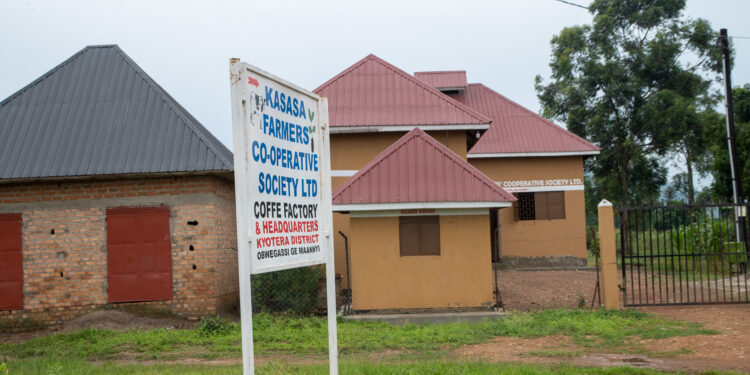At the sidelines of an event commemorating one year of activities for the Tat Sat community project in Kasasa, Kyotera district, Central Uganda, Solutions Now Africa speaks to Dr. Ronald Kibirige, the liaison officer of the project.
We casually ask what sets this project apart and makes it unique. With probably a lot to wax lyrical about, provided the great success this project has enjoyed in just one year, he chooses a subtly modest submission.
“There are many aspects, but I’d like to highlight the significance of the small things. These are the elements that truly make a difference. For instance, the project’s school motto is ‘Obumanyi n’obuntu bulamu’ (knowledge and humanity). Where else in Uganda can you find a secondary school with such a motto? A school that prioritizes humanity?” Kibirige rhetorically asks.
In Uganda, a typical secondary school motto would often read like ‘hard work pays’ or ‘discipline and hard labor.’ The common belief is that a combination of hard work and discipline is sufficient for the success of any young individual. Whether this belief is right or wrong, or if the two virtues are enough, Dr. Kibirige’s emphasis on the impact of small details is noteworthy.
“We have witnessed instances where schools are established in certain neighborhoods, and after five years, the school has prospered, but the surrounding communities remain impoverished. That school caters to people from distant areas, while the local community struggles to afford it,” Dr. Kibirige elaborates.
At the beginning of 2023, Tat Sat Community Secondary School opened its doors to the Kasasa community and the neighboring areas, serving as a flagship component of a broader project. This initiative that charges subsidized school fees has since expanded to include a maize milling plant, a clinic, a savings project, a commercial brass band, and a cultural performance troupe.
The project model is intricately designed to create an intersection connecting each of these components, forming a cohesive ecosystem. The model revolves around the idea that the community enhances the value of their main crop, maize, through the milling plant. They can then sell the resulting product to the school or deposit their earnings in the Sacco, enabling them to borrow funds for school fees or to till their land for the next season. …and the cycle goes on.
“Before this project, farmers would be ripped off by middlemen from urban centers like Kyotera, and they would never earn enough to even afford a decent school in the neighborhood. The communities here would never fully understand how that affected them in the long run,” says Charles Mukasa , the headteacher at the community school.
The unique graduate enterprise fund
Offering subsidized school fees rate and establishing a Sacco for credit access is one aspect, but life after secondary school poses a new challenge for rural parents, such as those in the Kasasa community.
Another distinctive feature of the self-sustaining model provided by this project is the fund accumulated from students’ school fees over the years through the same Sacco. A percentage of the school fees is set aside termly for each student. This fund is meant to help parents alleviate the financial burden of tertiary education expenses. It also supports them in starting profitable ventures after their children complete their schooling.
In fact, during that one year anniversary event, students showcase projects that go beyond traditional schoolwork. These projects encompass a wide range, from chalk making to baking, urban farming and textile production. The accumulated funds and hands-on skills acquired create a perfect launchpad for students entering an extremely challenging employment landscape in Uganda, where youth unemployment increased from 6.54% in 2021 to 6.58% in 2022 according to the Uganda Bureau of Statistics.
The leadership
Despite receiving external funding support, the project’s leadership firmly rests in the hands of the community. Right from the beginning, a board was selected from among community members, and all decisions are now made by them. According to Dr. Kibirige, this approach serves as an example of decolonizing philanthropy.
“Our goal is to empower the community. We aim to move away from dependency on donor funding within a few years. The idea is to enable them to achieve independence and self-sustainability,” he emphasizes.
During the project launch, the Kyotera District Resident District Commissioner, representing the government, poses a question: ‘Have these people delivered on their promises in the last one year?’ The parents and community members echoe their agreement in unison.
Indeed, as the old adage goes, ‘If you want to go quickly, go alone; if you want to go far, go together.’ The signs are clear that the Kasasa community is embarking on something truly special right from the beginning of the journey.”



